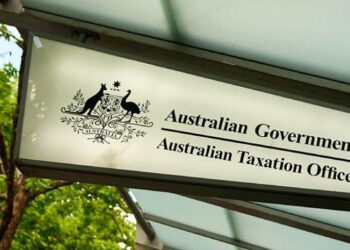The Centre for Independent Studies said the government’s plan to tax unrealised gains is unprecedented and will affect one in 10 Australians.
The think tank has entered the super policy debate questioning the justification of the new tax, challenging the design of the tax and undermining much of the political logic for the change.
If legislated, the report said, even if there is a change of government, the changes would stay in force for at least one term of a new government and would be hard to repeal.
The CIS report argues that the taxing of unrealised gains is not only inequitable, but that the ATO does not collect this kind of data, so it is open to interpretation and misuse.
The report is the first major opposition to the proposal from an organisation outside of the finance sector, and its author, Robert Carling, a former economist for Treasury, said it is flawed, indefensible and illogical.
“The most recent evidence cited in support of a reduction and restructuring of concessions is the Treasury’s Tax Expenditures and Insights Statement (TES) of February 2023,” Mr Carling stated.
“This is a longstanding annual publication but the most recent version has changed the title (from ‘Tax Benchmarks and Variations’).
“This seemingly innocuous change reflects an intention to convey the idea that revenue foregone by not taxing everything at full and regular marginal rates is as much an ‘expenditure’ as actual government expenditure.
“The ‘insights’ part of the title reflects an intention to make the document more analytical and more focused on distributional issues – who benefits from tax ‘expenditures’?
“It is no coincidence that the government’s announcement of the new TBT measure came the day after the release of TES.”
Mr Carling said the proposed tax will become even more detrimental the longer the TBT remains unindexed and suggests the government may well devise other measures to curb super tax concessions after the next election.
“The equity of superannuation taxation can only be properly assessed taking a broad view of taxes and transfers that includes the share of taxation actually paid by the top 10 per cent or 20 per cent of the income distribution, the distribution of the means-tested age pension and related benefits, and the distribution of taxes and benefits over lifetimes,” he said.
He said superannuation is only one part of the nation’s tax/transfer system, and “equity and progressivity should only be judged on the results of that system in its totality”.
“For all these reasons, the new tax should be shelved,” he stated.
“It is piecemeal policy change with no connection to broader tax reform. Superannuation tax should not be left out of tax reform; but the time to reconsider it is in the context of broader tax reform, if and when that occurs.”
If the proposal is to go ahead, Mr Carling said it needs a major redesign to remove some of its more “draconian” features and said the proposed calculation of earnings makes this fundamentally a wealth tax.
“There are no other comparable taxes in Australia apart from the states’ land taxes,” he said.
There are more sensible ways to raise revenue from superannuation, he said including taking up the 2010 Henry Tax Review’s recommendation.
This recommended to apply the tax on super fund earnings at a uniform rate on all earnings, with no exemption for earnings on balances supporting pensions.
“This could be done at 15 per cent or a lower rate such as 10 per cent that may still raise more revenue than the current system,” he said.
“Most importantly, it would be a major simplification, sweeping away all the complexity associated with the transfer balance cap, not to mention avoiding the additional complexity that the TBT will introduce.
Another option would be to align the threshold (currently $250,000) for the Division 293 additional tax on contributions with the threshold for the top marginal rate of personal income tax, which will be $200,000 from 1 July 2024 under the Stage 3 income tax cuts.
This means that the tax concession on contributions would be a flat 17 per cent (including Medicare levy) at all taxable income levels above $45,000.
The proposal would subsequently also worsen bracket creep across the tax system, Mr Carling notes, as they will not change regardless of inflation.
As well, there is no plan to grandfather the new changes so they will also apply to future investors but hit existing investors immediately.
“Politically, it is easy to take pot shots at people with more than $3 million in superannuation, that does not relieve government of the responsibility to craft policies in the broad public interest – and the total balance threshold proposal does not pass that test,” he said.
“The new policy now effectively says (past) superannuation rules were wrong and the consequences must now be addressed through higher taxation. This flies in the face of grandfathering in similar situations in the past, and it undermines trust in the superannuation system and government more generally.”



This tax change proposed is a death knell for SMSF member funds and I think this is the intention behind the move in favour of the large industry funds by the labor government to close down as many of the independent SFSM funds as they can engineer..
I don’t understand this view. The proposed tax is fund neutral. If you had the equivalent amount of money in an industry fund and had the same returns, you will have the same tax liability
I would guess that most smsf fund owners wpuld invest outside of super in bettter tax vehicles that still offer asset protection. Who wants to.pay hifhest margonal tax rates and not have ready avcess to finds. There is no longer any incrntive to invest in super if you have big dreams. Inveat oitside of super, not in personal names ,and even get access to pensions in retirement by appropriate management
I am not saying that I would personally do this but it is clearly an obvious sttategy.. I have checked my workings and I will most cwersinly be paying more than 3 times 15%. No oncentive whatsoever if this gets throigh.
This is the exact point. People to date mostly hold large balances in smsf funds due to better performance as you invest for yourself and not to generate a steady management commission fee. The measure penalises outperformance to encourage people to move back to or stay with industry funds who invest in govt projects etc. This is clearly the govt’s plan.
Thank goodness for common sense! Under the current Treasury proposal, our SMSF and its 2 members would have had more than a tripling of the 15% tax already paid by the SMSF in the 2022FY. In fact, almost 47% tax equivalent because of the formula used. Then having to pay in our own names, our share of the new tax would have left very little of our reasonable taxable incomes, not enough to pay even utilities and insurances. We would have had no option but to draw down super to pay the tax and then have to pay an extra 30% on the drawdown in the calculations for the following year’s calculations (withdrawals included in the tax proposal’s calculation), making it even more draconian and egregious.
My common sense head thinking kept saying, “this cannot pass as it is just far too punitive and egregious” but my fearful head kept saying “your superannuation is just too easy pickings for a greedy government intent on killing the golden goose”.
Anyone that understands this Treasury Proposal and the calculations, will understand that it was not merely a doubling of the tax, as most media outlets and the current government would have us all believe, but significantly more for those affected. And far more than any other taxing vehicle in Australia. To say otherwise is either deliberately misleading or plain ignorance. Even the highest personal tax rates, once flattened for the different tax thresholds, are not as high as this tax proposal will potentially be, depending on the unrealised capital gain. To tax pie in the sky gains is simply a compliance nightmare and does not allow for selling costs of agency/broker fees, legal fees and capital gains tax. What is more is that there was no credit allowed then when Capital Gains Taxes were calculated, so again, a tax on top of a tax. The overall taxes could easily amount to well above personal tax rates, again, depending on the unrealised gains,
And the major assumption by the government and other organisations that claim that saving within Superannuation is revenue lost to the government assumes that the asset would have been purchased in personal names, when clearly there are many other tax vehicles available that offer both asset protection and tax minimisation outside of superannuation. Asset protection is a major advantage and the reason why so many assets are purchased in other tax vehicles. Ask any medical professional who has been the victim of a vexation claim and have had their assets from their hard work at risk. That’s often why these vehicles are used.
Thank you for your articles. This proposal has been a major source of stress and duress for our family since it was released, as it meant either selling our home or selling our SMSF assets to pay for it. Pity those caught up in it and nowhere near being able to retire in order to reorganise their finances to a less egregious tax vehicle.
BTW – we pay far more than our share of tax in the broader scheme of things at federal, state and council levels. I do believe that the wealthy should pay towards welfare etc – and as a group, [i]no one[/i] can deny that we do. Some individuals and companies may be able to get around paying their fair share of taxes, but most don’t.
Hi V W, I’m sorry to heat that this is causing distress.
I’m well versed in the formula and can’t see how it could result in 47% tax. Could you explain how you get to this figure. With a bit of luck I might be able to demonstrate that this won’t be the case and potentially ease the distress.
I’m neither supporting the proposal nor against it, just trying to help.
I have replied in full detail with workings FYI (yet to be published to the site). I note a small error – Contributions need to be Net of Tax, so insert $23375 instead of $27500 in each of the 2 member cases. This will slightly increase the tax owed under this proposal by about $354 to $360 each. Certainly approx 47% tax when combined in the SMSF with the normal tax on income…..
Hi
Something was not liked in my previous email in response to Super W, so here, I welcome confirmation or otherwise that this is correct. I have allowed for the Contributions to be Net of Tax: so here it is again:
1. 15% tax paid on SMSF taxable earnings 2022FY – $93997
2: Member 1
TSB (Current FY – 2022) – $7.1m
TSB (Previous Year – 2021) – $5.933m
Withdrawals – Nil
Contributions Net of Tax – $23375 (.85x$27500)
Earnings – $1143625
Proportion of Earnings corresponding to funds above $3m – 57.7%
Tax Liability on Earnings above $3m – $99060
3. Member 2
TSB (Current FY – 2022) – $7.0m
TSB (Previous Year – 2021) – $5.8m
Withdrawals – Nil
Contributions Net of Tax – $23375 (.85x$27500)
Earnings – $1176625
Proportion of Earnings corresponding to funds above $3m – 57.1%
Tax Liability on Earnings above $3m – $100854
Total tax overall on the same fund for the 2022FY = $93997+99060+100854 = $293911 (46.9% on Taxable Income of
$626648 in the SMSF).
Of course, the definitions of Earnings and taxable Income are different under the Treasury Proposal and Tax Law. I highlight simply how there is no incentive whatsoever to invest in superannuation if this comes through, given personal rates are flattened and will be less than 46.9% after flattening, and savings are no longer locked up. And of course there are far better vehicles available to invest where Asset Protection is a major advantage over investing in personal names.
The above figures are based (with rounding) on 2021 and 2022FY actual data for this SMSF and its 2 members. There was some Contributions Splitting which I have not included in Withdrawals for one member against Contributions for the second member.
The income payable in our own names uses up almost our entire after-tax income, hence our income would now not be enough to live on. And in the following FY, the amount withdrawn from the SMSF to pay for this tax instead of in personal names is then taxed under the next FY – a tax on a tax. And the tax on Unrealised Income under this proposal, will not be accounted for when the asset is also, inevitably, paid. More taxes on taxes.
I am confident that the workings are accurate, and they highlight why this tax is so egregious.
Hi
I have tried twice to get my working published to no avail so far.
I have received the first page of a letter from Treasury to my local member and clearly even Treasury does not understand the implication with real-life examples
.
I will try to get the message across in this way instead:
Our super fund paid 15% tax on its taxable income of almost $94000. Member 1 pays slightly more than 15% after all the workings, $100000, due in most part to very strong capital growth. Member 2 also pays slightly more than 15% after all workings, also approx $100000. This amounts to $294000 tax when the SMSF paid only $94000, hence 46.9% tax for a fund that had Taxable Income of $620000. I understand that one is calculated on taxable income and the other on “Earnings” but nonetheless, more than a tripling of the income tax for the fund, based on 2021 and 2022 tax returns for the individuals member balances. I am not sure why it ended up being more than 15%, but it did. My calculations are correct. In fact, the tax payable calculations given by Treasury for Warren (in its Treasury Proposal workings) are incorrect due to rounding of the “33%” Proportion of Earnings.
The tax owed in personal names uses up almost our entire, sizable, income after tax of $116000k each. It means that we get to pay our home and contents insurance, utilities and car insurance perhaps. But no maintenance on a large property and no food or clothing etc.
I don’t understand why people are not getting this! Publishing real-life worked examples would help.
Kindest regards
Victoria
The design of the rules are just plain wrong taxing unrealised gains. Great article